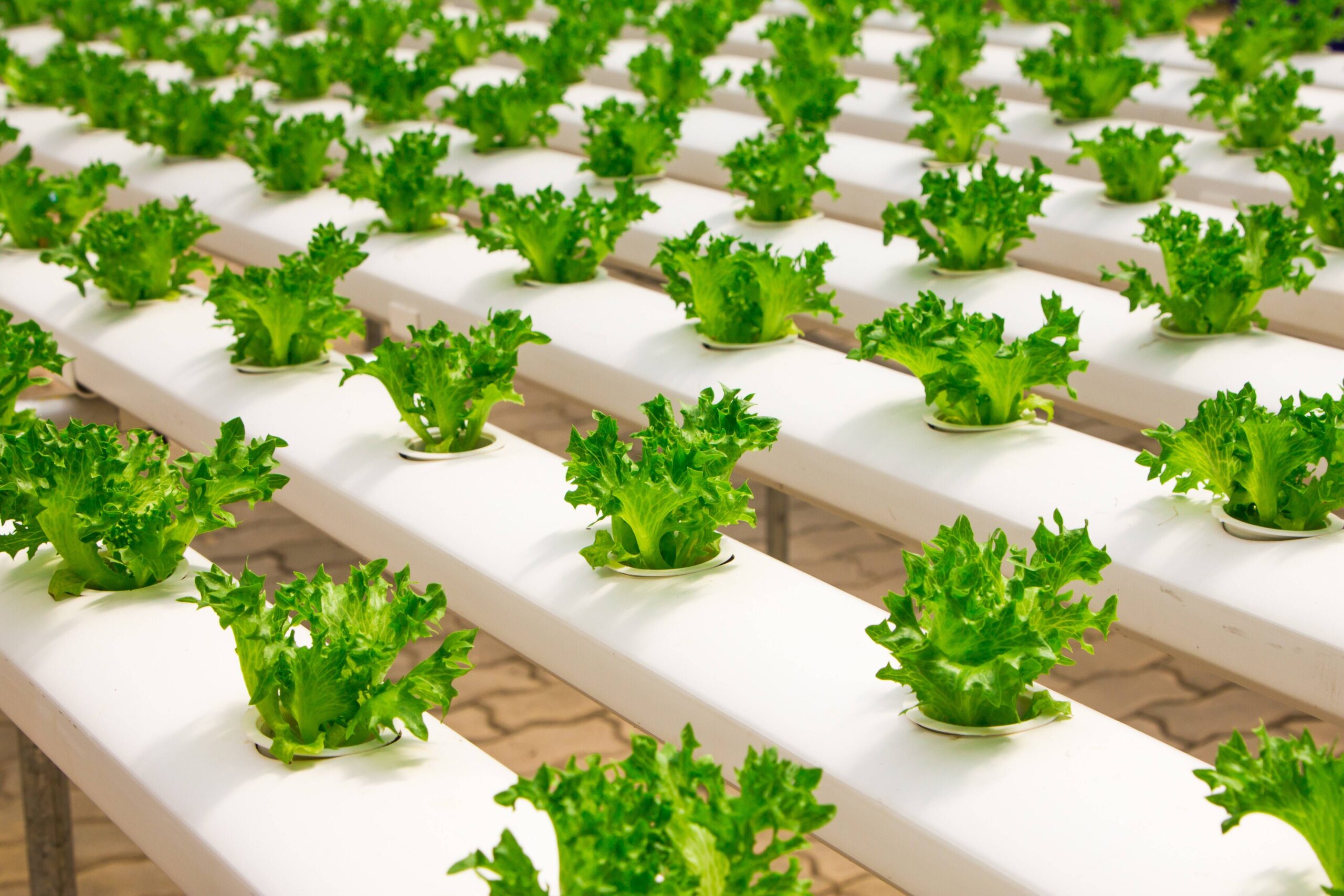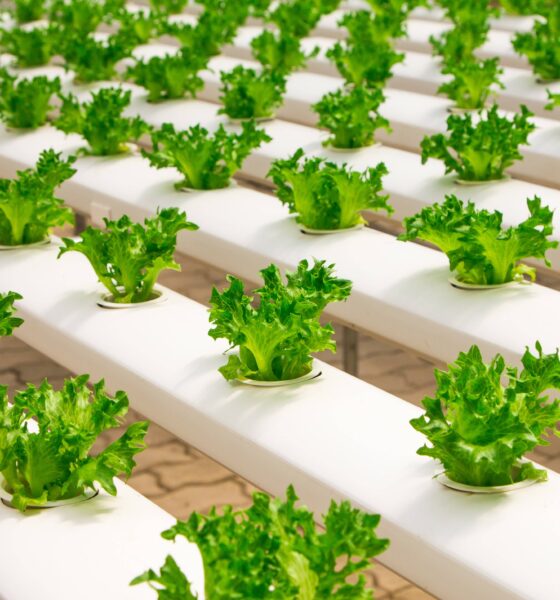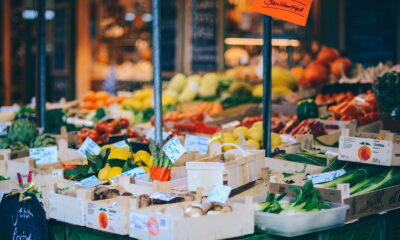

Environment
6 Food Industry Improvements We Could See In 2019
The food industry is continually evolving. From plant-based meat to a focus on sustainability, there are plenty of food industry improvements to look forward to in 2019. And as individuals worry more about sustainability, whole foods and the environment, large food manufacturers will as well. Here are six food industry trends to watch for in 2019.
1. Functional Foods
Rising medical and insurance costs have helped the rise of functional foods and beverages.
For example, foods with added fruits and vegetables, probiotics and vitamins make up this niche segment that could grow close to 8 percent annually through 2021. That means probiotics will start to appear in food other than yogurt and the Tropicana Essentials Probiotics line.
These versions can make consumers feel healthier than buying the standard option, and scientists are capitalizing on it. In 2019, functional foods such as algae fiber-rich inulin flour from chicory root will take off. It’s an improvement health-conscious shoppers can capitalize on in 2019.
2. Plant-Based Meat
While plant-based meat is already here, 2019 is the year when it will become even more refined. Manufacturers such as Beyond Meat and Impossible Foods are working to make more than veggie burgers for non-meat eaters. And these products will become more accessible. For example, the Impossible Burger is available at 5,000 restaurants across the U.S., including White Castle.
Consumers can also expect to see plant-based fish substitutes in 2019, which is excellent for the environment, as overfishing has become a substantial problem.
A Nature Communications 2016 report said more fish had been caught globally between 1950 and 2010 than admitted, causing a massive decline in the worldwide fish population. Plus, commercial machinery to crawl the ocean bed catches more than just fish. Whales, dolphins and turtles are all getting trapped and killed in nets.
Plant-based fish can solve this problem. Good Catch Foods already has plant-based tuna being developed and set to launch in February 2019. They are also working on a line of meat-free burgers and crab cakes which will launch sometime in the future, though no specific date has been set at this time. While not meat, nut and grain-based milk analogs are also significantly growing as a portion of total milk sales.
3. Cannabis in Food and Beverages
Cannabis has been a big buzzword over the years, but it could become a reality in 2019. If the 2018 Farm Bill passes, the cultivation of hemp will become legal, and you will see more companies carrying products with CBD.
This non-psychoactive compound is an extract of the marijuana plant, and some enthusiasts say it adds another dimension to food.
Josh Schwab owns a Denver-area doughnut shop called Glazed & Confuzed. One of his top-selling items is a CBD-frosted doughnut topped with a candied hemp leaf. That’s just the beginning. In 2019, you could see cannabis mixed into milkshakes or infused in olive oil. On the beverage side, some states already have CBD-infused Vybes drinks available that come in different flavors such as blueberry mint and blackberry lavender.
Marijuana is another story. It’s already legal in 33 states and Washington, D.C., and the cannabis edibles market is growing. In Canada, where cannabis has been legal since mid-October, companies are using it in non-alcoholic, cannabis-infused drinks. While no one knows what the regulations will look like in states that legalize CBD, people can expect to see it pop up in more food and drink options in 2019.
4. Clean Label Foods
Clean label foods are part of a consumer-driven moment to not only return to real food, but achieve transparency. These foods are supposed to contain natural, simple ingredients with familiar names people can recognize and understand. Clean label foods do not have artificial ingredients or synthetic chemicals.
The clean label food movement will persist in 2019, with more manufacturers and companies taking part. Take Kemin Industries, a company that helps manufacturers protect their food and beverage foods. The company understands the drive behind the clean label trend, but also recognizes most people buy for convenience. Kemin is now helping processes replace synthetic preservatives with clean label alternatives, especially in reheated cooked frozen meat.
5. A Focus on Sustainability
Sustainability is an integral part of many businesses’ brand. Patagonia screams sustainability, and consumers know exactly what they’re purchasing when they buy from the company. However, that’s not often the case with food. That will change in 2019.
U.S. consumers are willing to pay more for sustainability food industry practices. Whether sustainability is in the packaging or production side, many people want to feel as if they’re helping the environment. Everyone from Coca-Cola to Walmart has announced sustainability pledges that focus on where their products come from.
Expect sustainability to become standard in 2019 instead of something that sets companies apart, whether it’s compostable packaging or ethically sourced products.
6. Classy Vending Machines
Today, it’s easy to buy convenient snacks and other quick eats out of a vending machine, but those options will change in 2019. The proof lies in Applestone Meats’ vending machines. They’re 24/7, and serve protein such as beef, pork, lamb and sausage. Joshua Applestone, the company’s founder, continually restocks the machines to keep up with demand.
These machines offer a clue to what could come in 2019. Accessibility is key, so more foods such as different meats and organic products should become easier to find and purchase. On Applestone’s end, he’s planning on creating custom-made vending machines that carry around 150 items, but could hold up to 1,000.
With so many options, the food industry will get a revamp as far as what specialty foods people can purchase quickly and efficiently.
Watch for New Trends in 2019
Self-proclaimed foodies have a lot to look forward to in 2019. New food industry trends, from plant-based fish substitutes to meat from a vending machine, will become readily available, and CBD-infused food and beverages will saturate the market from both startups and big names.
These industry improvements will not only bring consumers healthier and more sustainable food, but an even better purchasing and eating experience.


 Environment12 months ago
Environment12 months agoAre Polymer Banknotes: an Eco-Friendly Trend or a Groundswell?

 Features11 months ago
Features11 months agoEco-Friendly Cryptocurrencies: Sustainable Investment Choices

 Features12 months ago
Features12 months agoEco-Friendly Crypto Traders Must Find the Right Exchange

 Energy11 months ago
Energy11 months agoThe Growing Role of Solar Panels in Ireland’s Energy Future


























